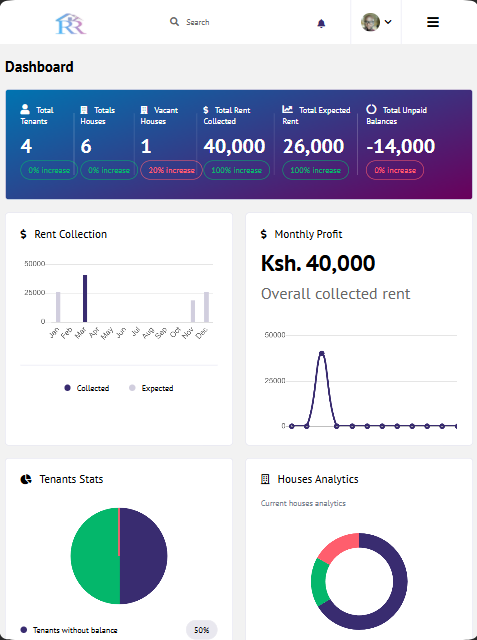Inside Kenya's Universities: The Silent Epidemic of HIV, STIs & Drug Abuse
“University life should be a time of growth and ambition—not destruction.”
— Dr. Margaret Mwangangi, Public Health Specialist
A Crisis Hidden in Plain Sight
Behind the lecture halls and graduation dreams lies a vulnerable demographic silently battling health risks, peer pressure, and harmful lifestyle habits. Kenya’s universities, once seen purely as hubs of academic and social advancement, are now facing a growing and complex crisis.
This investigation draws on reliable data from official reports, including KENPHIA 2020, NACC, and NACADA, as well as expert commentary from medical professionals, psychologists, and campus counselors. Our goal is to shed light on the hidden struggles threatening the mental, physical, and social well-being of the next generation of Kenyan professionals—and to spark urgent conversations around intervention and prevention.
📊 What the Numbers Say
- According to the National AIDS Control Council (NACC), nearly 29% of new HIV infections in Kenya occur among youth aged 15–24, many of whom are enrolled in tertiary institutions.
- The Kenya Population-based HIV Impact Assessment (KENPHIA 2020) also reports high rates of untreated STIs and HIV cases among university students.
- NACADA's 2023 report identifies university students as a high-risk group for alcohol, marijuana, and prescription drug abuse.
🏫 Universities Frequently Cited in Reports
1. University of Nairobi (UoN)
Kenya’s largest and most prestigious public university faces serious challenges:
“The University of Nairobi Main Campus and Lower Kabete Campus are hotspots for sexually transmitted infections, with students engaging in unprotected sex during frequent unsanctioned parties.”
— The Star Kenya, 2022
The NACADA 2023 report highlights high usage of alcohol and marijuana, especially in off-campus hostels.
2. Kenyatta University (KU)
Despite its pristine campus, KU reports frequent STI cases and drug-related incidents:
“On average, we treat about 10–15 STI cases a day, especially after campus events or holidays.”
— Senior nurse, KU Health Unit, quoted in Nation Africa, 2021
Surrounding hostels in Ruiru have been under surveillance due to student involvement in illegal drug possession.
3. Moi University (Eldoret)
Students here battle both academic pressure and peer influence:
In Citizen TV’s Campus Diaries (2023), students admitted using Rohypnol and Tramadol to manage stress or fit in socially.
The campus regularly partners with AMPATH to offer HIV testing and counseling services due to high demand.
4. Egerton University (Njoro)
In the quiet town of Njoro, substance abuse is rising fast:
A 2023 study by Egerton’s School of Health Sciences found that alcoholism among male students had increased by 38% since 2019, with many starting in their first year.
Nearby villages reportedly host illicit brewing dens, which offer cheap and dangerous alcohol.
5. JKUAT (Juja Campus)
Proximity to nightlife and urban chaos has made students more vulnerable:
“The rate at which students are engaging in transactional sex and drug use at JKUAT is worrying. Economic pressure, especially post-COVID, has worsened the situation.”
— Dr. Peter Kinuthia, Counseling Psychologist, Standard Digital
6. The Co-operative University of Kenya (CUK) – Karen, Nairobi
Though relatively smaller in student population, CUK has witnessed a sharp uptick in STI and substance abuse cases in recent years.
“Our biggest concern at Co-operative University is the increasing number of students experimenting with drugs, especially over weekends when they’re off-campus,”
— CUK Guidance Counselor, quoted in a 2024 health bulletin by the Karen Community Health Centre.
In a collaborative campaign with NACADA in 2023, CUK was listed among the rising-risk universities needing urgent psychosocial interventions.
7. Multimedia University of Kenya (MMU) – Magadi Road, Nairobi
Situated near Nairobi’s entertainment hubs, Multimedia University students are particularly exposed to nightlife culture, which experts say has contributed to increased risky sexual behavior.
“We’ve recorded a growing trend in unplanned pregnancies and HIV testing requests during semester breaks,”
— Senior Nurse, MMU Health Centre, cited in People Daily, 2023.
The Magadi Road–Lang'ata stretch, known for its party joints, was identified by NACC as a zone of concern in relation to STIs among youth, with MMU students frequently mentioned in regional health surveys.
8. Chuka University – Tharaka-Nithi County
Despite being in a rural setting, Chuka University has been flagged for increasing drug and alcohol use, particularly among first-year students.
“Local chang’aa dens and easy access to miraa have created a dangerous culture among students,”
— Local chief in Chuka, speaking to NTV Kenya in 2023.
A 2023 internal report by Chuka University’s wellness department highlighted a 22% increase in cases of alcohol-related hospital admissions from the student population compared to 2021.
The school has since launched a Campus Clean-Up and Sober Living Program supported by UNODC (United Nations Office on Drugs and Crime), aiming to rehabilitate and educate students on substance abuse.
Despite frequent health awareness days, stigma keeps many students from accessing help.
⚠️ What’s Fueling the Crisis?
- Peer Pressure & Newfound Freedom – Most students are away from home for the first time.
- Lack of Comprehensive Sexual Education – Misinformation is common, and practical knowledge is limited.
- Mental Health Struggles – Depression, trauma, and academic stress are major triggers for risky behaviors.
- Easy Access to Substances – Urban campuses are surrounded by clubs, lodgings, and drug dens.
🛡 Efforts Being Made
Some hope shines through. Several institutions and NGOs are stepping up:
- NACC and AMREF conduct regular HIV testing and awareness campaigns in universities.
- Campus peer counseling programs and health clubs promote safer behavior.
- NACADA-backed initiatives aim to reduce drug usage through awareness and rehabilitation.
“We must treat this as a national crisis. We’re losing too many bright minds to addiction and preventable diseases.”
— Prof. Mary Mutugi, Kenya Medical Training College
🚨 Final Word: A Call to Action
Kenyan universities are more than just academic institutions—they are the breeding ground of future leaders, doctors, teachers, and innovators. But without swift, coordinated efforts, this crisis could compromise the very foundation of our nation's progress.
It’s time for parents, educators, policy-makers, and students themselves to act decisively. The future of Kenya depends not just on academic excellence—but on the health, well-being, and resilience of its young people.









